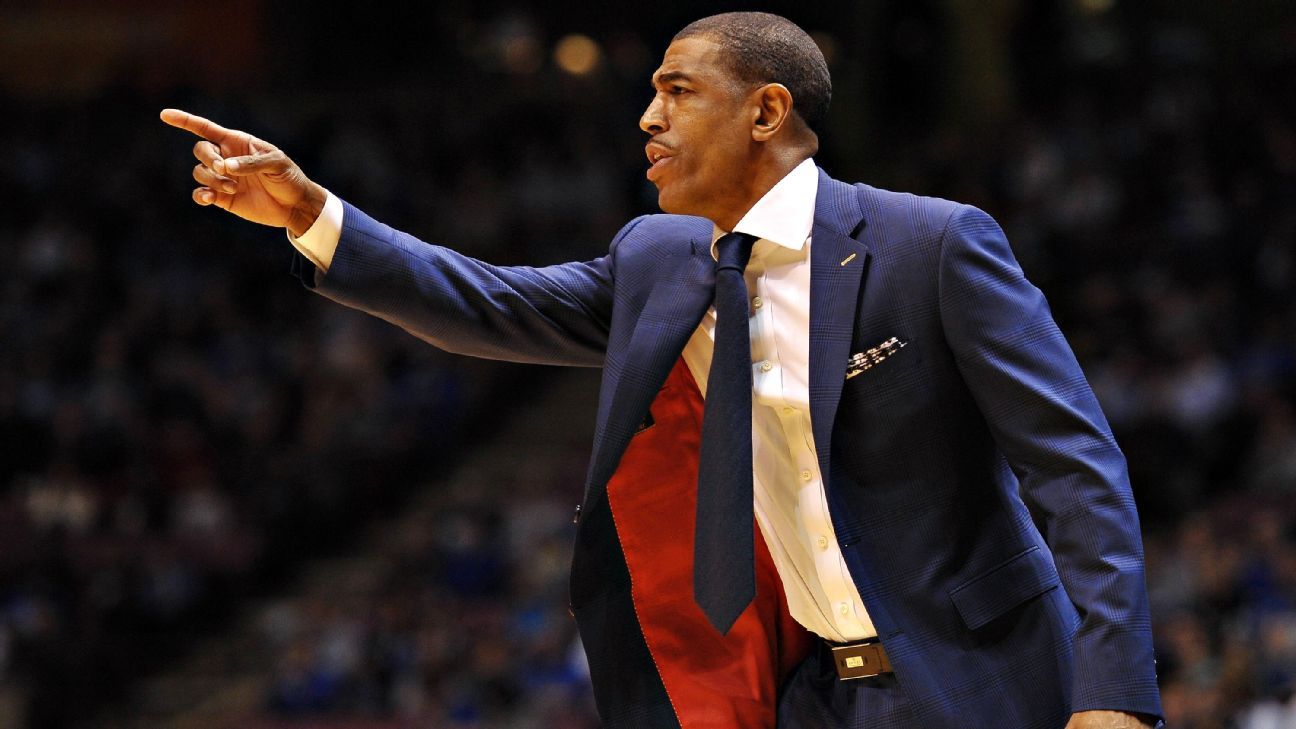Candid Coaches: Is name, image and likeness helping or hurting college athletics?
- By Halldan1
- Pirate Hoops Chat
- 11 Replies

Candid Coaches: More than one year in, is name, image and likeness helping or hurting college athletics?
We asked coaches for their thoughts on the impact NIL legislation has had on college athletics
By Gary Parrish
We asked coaches for their thoughts on the impact NIL legislation has had on college athletics

Graphic by Keytron Jordan
CBS Sports college basketball writers Gary Parrish and Matt Norlander surveyed roughly 100 coaches for our annual Candid Coaches series. They polled everyone from head coaches at elite programs to assistants at some of the smallest Division I schools. In exchange for complete anonymity, the coaches provided unfiltered honesty about a number of topics. Over the next few weeks, we'll be posting the results of the questions asked.
A world where student-athletes would be able to profit from their name, image and likeness (like all other students) is something some of us discussed constantly in the years leading up to it becoming a reality. Reasonable minds could disagree on the impact it would someday make on college sports, among them the sport of men's basketball. But now, a little more than a year into this new way of doing things, it's undeniably a big deal that has reshaped how athletic directors and coaches do their jobs. With this as the backdrop, we asked roughly 100 college basketball coaches the following question:
More than one year in, is name, image and likeness helping or hurting college athletics?
|
Quotes that stood out
Helping
- "Probably too early to tell but I think it is helping the college basketball product. You saw some really good players return to college because of the financial implications."
- "We are keeping more guys in college basketball and the really good players at each program are more likely to stay at their school than transfer."
- "Overall NIL is helping college athletics -- (but) it does need some guardrails. Even pro sports have salary caps. It has made coaching more of a challenge because there is an expectation of getting a deal at the snap of your fingers."
- "I like NIL -- I just don't think it's been managed properly. Some of the money out there right now, I just don't understand or see how it's sustainable. I certainly think NIL should be an option for college athletes, it's just gotta be managed somehow better. It's out of control right now. I don't understand where all this money is coming from and how it can be sustainable. It's good for a place like my school because we would never cheat, and now it allows us to offer our players something in a legal way. It's a good thing for college basketball, but certainly somehow needs to be managed a little better because it's just a little bit out of control right now."
Hurting
- "It's increased so many ways for people to move money to players, handlers and families that have nothing to do with NIL but can fall under the guise of it. Pay-for-play is more brazen than ever before.
There is no teeth in any legislation that you don't feel the right lawyers couldn't get you through."
- "Recruiting has become a silent auction for recruits going to the highest bidder. It's not about where the best fit is anymore, style of play, role, development, etc. for a recruit's future."
- "I think NIL has eliminated 'college' athletics, and much of this is due to the lack of progressive thought by leadership in the NCAA. They had numerous years and opportunities to find ways to allow players to profit off true NIL. Because of their backtracking, they got backed into such a corner they essentially opened the floodgates -- to not players profiting of name, image and likeness, (but) legit pay-for-play. I do think the market corrects itself in the years to come. I think less people will be interested in giving money on the front side."
- Overall, I think the combination of NIL and the transfer portal has hurt college athletics. I think both on their own would be fine, but when you put the two together you have poison. Mid-major farm teams. Collusion at the high-major level and free agency with no contracts. At least in the NBA there is a salary cap and contracts with penalties."





















